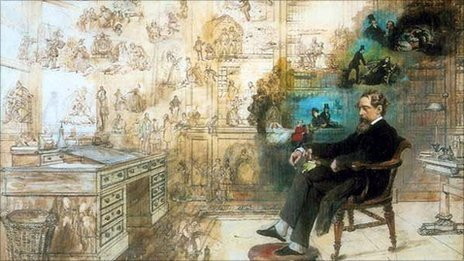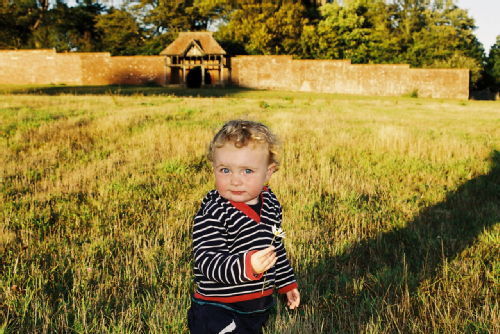David Morley's Blog, page 22
February 7, 2012
February 1, 2012
Publication Day for The Cambridge Companion to Creative Writing by David Morley
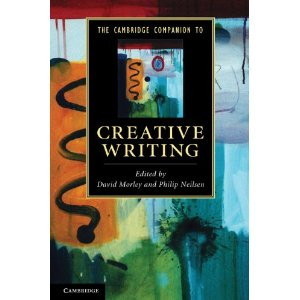 oreword to The Cambridge Companion to Creative Writing
oreword to The Cambridge Companion to Creative WritingOn Criticism and Creativity
Creative writing has been the subject of university level study in American universities and colleges far longer than it has been within British higher education. The common pattern in the American system has traditionally set the ‘writing program’ apart from the critical, historical and theoretical work of the ‘literature’ department. Typically, the writers will be employed for the drudgery of instructing students from almost every discipline in ‘freshman composition’ (how to structure an argument, a paragraph, even – remedially – a sentence) and then be rewarded with some small group teaching in which, at a more advanced level, they assist the aspirant writers of the future in the improvement of their novels, stories, scripts and poems. The academics, meanwhile, will teach a freshman survey course of the kind that used to be known in the trade as ‘from Beowulf to Virginia Woolf’ but that is now more likely to be a guided tour of competing theoretical approaches to the subject and to include a high proportion of contemporary, often international, literature; they will then teach other, more advanced courses in their specialism, which could be anything from Shakespeare to the Victorian novel to some aspect of literary theory to postcolonial women’s poetry. In terms of their ambitions for publication, the ‘writer’ will be working on, say, her latest novel and the ‘academic’ on a learned conference paper that will later be worked into a critical book for a university press. It is not unknown for the writers and the academics to neglect each other’s work and even to view their counterparts down the departmental corridor with a degree of suspicion.
There is no inherent reason why there should be such a division between criticism and creativity in English studies. Consider the higher level teaching of music and art, the disciplines of writing’s sister arts. University degrees in music do not confine themselves to questions of form, history and cultural context, as English degrees often do. They have an emphasis on technique and on practice that is rarely encountered within a traditional English degree. The serious student of music will be expected to read music, to play an instrument, to hear a shift from major to minor key. Similarly, the serious student of art will be expected to know about perspective, to discover the different properties of different materials, and (one hopes) to draw in a life-class. It is not usually demanded of literature students that they should be skilled in the literary equivalents of such techniques as playing a scale, composing a variation, sketching a nude: they are not habitually asked to scan a line of verse, compose a sonnet or sketch a fictional mise en scène. An education in the art of writing is often regarded as marginal to an education in the art of critical reading (as the agenda of most English departments used to be) or the art of cultural poetics (as the agenda of most English departments has become). But it is precisely this gap – an education in the craft of putting together words, analogous to the craft of putting together musical notes – that creative writing programmes can fill.
January 30, 2012
Walking Underwater by David Morley
This was the poem selected for the 2011 Montreal International Poetry Prize, “Walking Underwater” by Australian poet Mark Tredinnick.
The winning poem was selected by former UK poet laureate Andrew Motion from a shortlist of nearly 50 poems. “This is a bold, big-thinking poem, in which ancient themes (especially the theme of our human relationship with landscape) are re-cast and re-kindled. It well deserves its eminence as a prize winner,” said Motion.
When asked to say a few words about the Montreal Prize, Mark responded: “This prize celebrates the making of poetry everywhere, in particular all of the shortlisted poems. To win it feels completely improbable. It’s a huge delight and an honour I’ll try to keep living up to in my writing.”
Walking Underwater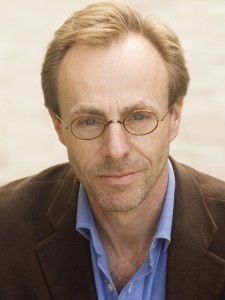
By Mark Tredinnick
Click here for the MP3.
For Kim Stafford
There is this quietness that hangs over North America.
As if all the days were double-glazed against themselves.
It’s uncanny. Tectonic. A kind of grief, a kind of pain
In waiting. Some sort of business unfinished. I feel it here
In the northwest, especially, though it stalked me in Toronto:
A slender quality of northern light, I guess, my southern
Self’s unused to, transposed into a season of suppressed sound,
A penumbra of silence cast by too much history, too much
Ecstatic landscape, too many plot points resolved at gunpoint,
And it feels like my life’s been lost here from the start.
I’m sorry: I’m talking out of my mood, which is jet-lagged
And dreaming heavily of what it used to think I loved.
There are plates subducting other plates on the mantle
Of my mind; there is disquiet and illness of ease. But look,
Out your windows the prayer flags have stopped
Praying, and moss deckles the edges of the oaks and firs,
Which hold out stoically inside the sweetest excuse for day-
Light I’ve ever seen. Come out with me, you say; let’s wander
Up the river. Let’s see what N’chi wana has to say about
The light… Which turns out to be a lot, and most of it profane—
The cock and the cunt, for instance, Neruda’s entanglement
Of genitals, right there, gargantuan in basalt, and wrapped in Douglas
Fir on the south bank—and glorious. The robins along the Eagle
Creek drainage seemed convinced it was spring, but the cloud
That streamed downriver on the back of the teal-blue water
And the rising wind and the narrow road coming unstuck beneath
Our feet, were all busy putting winter back in place. And for two
Hours you schooled me in the art of walking underwater; for two
Hours we carried a bright conversation all the way to the falls
And back again in rain that fell like disappointment on my head.
If you’re going to call a mountain range The Cascades, this is
What you’re going to get—their very name on the map
A long walk in the rain. But it was worth it; it nearly always is:
The afternoon crying out the grief the continent had spent
All morning—all last century, so far as I can tell—trying not to
Confess. The watershed was a Japanese watercolour at risk
Of running off the canvas, the big water carrying its muted palette
Down to the sea and taking a good part of me with it. The gorge,
It turns out, is a green sermon left largely unsaid, and as we drove
Out of it, evening lay on the river like half the psalms I never knew.
Note: The Columbia River is known by many names to the people who
live along it. To the Chinook of its lower reaches, it is known as “Wimahi”;
the Kwak’wala-speaking peoples of the river’s middle reaches call the river
“Nch’i-Wana”. Both “Wimahi” and “Nch’i-Wana” mean “the big water” or
“the big river”.
January 20, 2012
John Clare's 'The Mouse's Nest' by David Morley
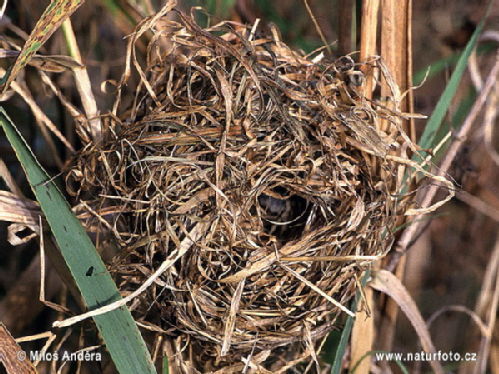
I found a ball of grass among the hay
And proged it as I passed and went away
And when I looked I fancied something stirred
And turned again and hoped to catch the bird
When out an old mouse bolted in the wheat
With all her young ones hanging at her teats
She looked so odd and so grotesque to me
I ran and wondered what the thing could be
And pushed the knapweed bunches where I stood
When the mouse hurried from the crawling brood
The young ones squeaked and when I went away
She found her nest again among the hay.
The water o’er the pebbles scarce could run
And broad old cesspools glittered in the sun.
Seamus Heaney describes this poem as 'seven couplets wound up like clockwork and then set free to spin merrily through their foreclosed motions'.
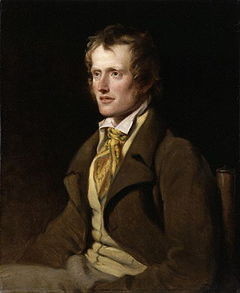
John Clare
December 31, 2011
December 1, 2011
Is Brendan Kennelly Essential? by David Morley
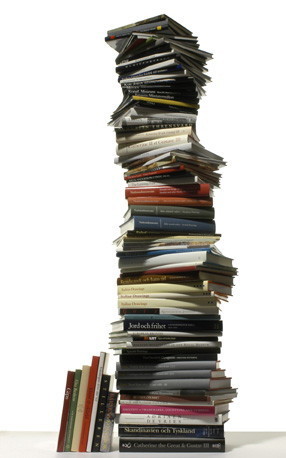
Brendan Kennelly is certainly an essential poet but his editors, Michael Longley and Terence Brown, have done him a favour by distilling his burgeoning oeuvre to the 110 poems in this book and 36 poems on a CD (Kennelly is a highly skilled spoken word artist).
This is a strong introduction to Kennelly, and the editors are refreshingly candid about the poet’s lyric and epic strengths as well as his occasional failures of rigour (there are worse crimes than over-writing or writing too much).
What comes across in The Essential Brendan Kennelly is the poet’s spiritual generosity, a tonic sense of wonder and a project that allows new readers to reach the core of Kennelly’s poetry without being tripped up by thirty slim and not-so-slim volumes.
The Essential Brendan Kennelly: Selected Poems, edited by Terence Brown and Michael Longley with CD of poems read by Brendan Kennelly, Bloodaxe Books, pb., 160 pp., £12.00, ISBN 978-1-85224-904-5
Thanks are due to the editor of Poetry Review, Fiona Sampson, where this piece first appeared.
November 28, 2011
'How Snow Falls' by David Morley
‘Married to Poetry… in Love with Prose’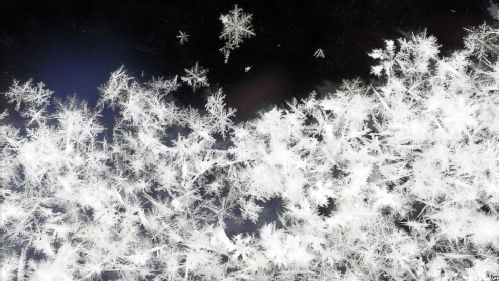
Peter Reading’s Vendange Tardive and Craig Raine’s How
Snow
Falls
have a strong sense of reaching shore after testing experiences, losses, voyages. Yet these latest collections by Peter Reading and Craig Raine arrive at styles of expression that are as comparably and incompatibly different as absence and presence. Peter Reading is absent from his work, his grump ghost and voice notwithstanding. Reality is favoured by Raine, even when it cannot be borne. But this written reality is made from himself, from remembered and imagined feeling. I know that, for a critic, subject should be secondary to style. I cannot help but feel that style in How Snow Falls is partly sacrificed for the purposes of shock:
…two days before she died, a question:
would I pluck the hairs out of her chin?
There were none on the ward,
so I bought some tweezers down the road.
Every time a hair was plucked,
she sighed, almost like someone being slowly fucked.
Yes, she said, yes. Yes.
The last pleasures of the flesh.
‘I Remember my Mother Dying’
As Kate Kellaway has observed the details seem not so much intimate as disinhibited. Raine’s early poetry possessed a poise of exactitude through its artistic inhibition: the poet edited himself very tightly; selflessness of vision made his metaphors ring with invention. His images extended how we might see, connecting with the reality of things, there being no reality but in things. There is still plenty of poetic CGI for those who like the spoils of eye-made art: ‘Ski lifts tireless as a trail of ants’; ‘The firs are herring-bone with snow’; ‘Trinity lawn, effervescent with hailstones’. Raine claims in this book that although he ‘will always be married to poetry’ he has ‘fallen in love with prose’, and the recent passion shows in the length of the book, an occasional breeziness of technique, and the privileging of subject.
It seems presumptuous of me to state of a writer and editor of his accomplishments but I think Craig Raine is a far better writer and editor than he is allowing himself to be. How Snow Falls might have been a shorter, sharper book. The final poem ‘A la recherche du temps perdu’ releases brilliant, buoyant, elegiac energy (imagine a Martian Poet recreating Muldoon’s ‘Incantata’). But ‘A la recherche’ is a poem published ten years ago in book form by Picador (How Snow Falls is advertised as his first collection in a decade.). As Peter Reading is super-selective ‘eschewing utterance’ when there is nothing to say, Craig Raine is generous, but generous to a fault.
How Snow Falls, Craig Raine, Atlantic Books, hb., 168 pp., £14.99, ISBN 978-1-84887-285-1
Thanks are due to the editor of Poetry Review, Fiona Sampson, where this piece first appeared.
November 24, 2011
Cunning, Precision... and Weight Loss by David Morley
Claire Crowther spent several years as an editor and journalist in the weight management industry. The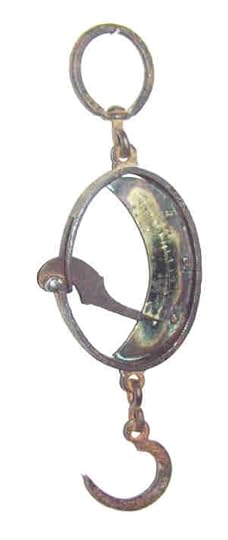 subject of her pamphlet-length sequence Incense is body fat, a subject ‘relevant to many readers but rarely written about’ sayeth The Blurb of Truth. Crowther’s chosen poetic form is the ‘aptly named’ fatras. The fatras arose in the fourteenth century France from the body of another form the fatrasie, ‘a type of verse that exploits the unreasonable, the ridiculous and the grotesque’ according to Lambert Porter’s essay La Fatrasie et le Fatras (1960). The subjects of these old poems were surreal five centuries before Surrealism: a cheese sneezes, an onion brays, a basin chants a vigil, a flying castle sews an oven. Such medieval play demanded medieval rigour. In the fatras, two lines, evocative and courtly in tenor, launched the following eleven lines, furnishing the first and last lines and giving the poem its phrasal momentum and framing. Rule one for the fatras was to begin sharply and finish shapely; rule two insisted that reality is dreamlike. Hence this new example of the form from Claire Crowther:
subject of her pamphlet-length sequence Incense is body fat, a subject ‘relevant to many readers but rarely written about’ sayeth The Blurb of Truth. Crowther’s chosen poetic form is the ‘aptly named’ fatras. The fatras arose in the fourteenth century France from the body of another form the fatrasie, ‘a type of verse that exploits the unreasonable, the ridiculous and the grotesque’ according to Lambert Porter’s essay La Fatrasie et le Fatras (1960). The subjects of these old poems were surreal five centuries before Surrealism: a cheese sneezes, an onion brays, a basin chants a vigil, a flying castle sews an oven. Such medieval play demanded medieval rigour. In the fatras, two lines, evocative and courtly in tenor, launched the following eleven lines, furnishing the first and last lines and giving the poem its phrasal momentum and framing. Rule one for the fatras was to begin sharply and finish shapely; rule two insisted that reality is dreamlike. Hence this new example of the form from Claire Crowther:
Ask a woman who’s lost four stone
from side to side like a throat cut.
Ask a women who’s lost four stone
of (mostly) fat:
what is the difference?
Capacity to jump and run?
‘Sure. But – as if snow melted
exposing tracks in tarmac
and the weediness of old
grass, this soaked ground –
my age has been uncovered.
Drawn mouth, a neck scored
from side to side like a throat cut.’
‘Untitled’
Crowther’s conflation of fat and fatras could, at first glance, appear whimsical, even too insistently willed. My view is that this entire sequence is a minor revelation - an almost outrageously blessed ravelling of traditional form and contemporary subject. The subject is treated with truth and respect, yet the old form is given fresh tone and turn. Although Crowther follows the form’s strictures to the letter, she is shrewd too, carving her own patterns. ‘Let Us Now Praise Adipose Tissue’ recreates the shape of ‘Two long chains/of fatty acids linked/by a glycerol backbone’. This poem also demonstrates deeper strengths in the language chosen: Crowther uses scientific terminology to cunning poetic purpose, and she also uses that precise language accurately. Like Marianne Moore, she is able to locate the poetry asleep in the language of science, even dare I say in the language of weight management.
Incense, Claire Crowther, Flarestack Poets, 28 pp., £4.50, ISBN 978-1-906480-27-1
Thanks are due to the editor of Poetry Review, Fiona Sampson, where this piece first appeared.
November 18, 2011
'Now I Know What Love Is
Vendange Tardive grapes are left on the vine to dry and concentrate, creating exquisite dessert wines in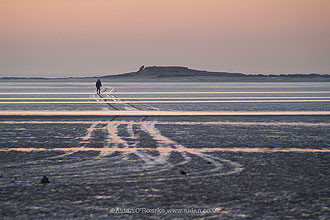 the
the
Alsace
region. The term means ‘late harvest’. I do not imagine this is the last we shall be hearing from Peter Reading, not when there is no escaping what follows winter. For older poets, age might break or make you into seeing yourself and your work with more exactitude. I imagine age might feel like exile yet provide the solace of arrival. Edward Said believed the late style of creative artists ‘is what happens if art does not abdicate its rights in favour of reality’. Speaking of the final poems of Cavafy, Said commended ‘the artist’s mature subjectivity, stripped of hubris and pomposity, unashamed either of its fallibility or of the modest assurance it has gained as a result of age and exile’. Peter Reading has conducted most of his poetic career since Work in Regress (1997) in this late style. Vendange Tardive is a taut example of mature subjectivity, stripped, tellingly, of ego: ‘when there is nothing’ he writes in a Wittgenstein-like fragment, ‘eschew utterance’.
The volume opens with a modest plea: ‘For the attention of Penelope Reading (Nunc scio quid sit Amor)’, Reading acknowledging that we write – in fact, we behave - with more exactitude when, with Virgil, we know what love is and have set ourselves to serve its purpose, even when we also know love can neither save us or the world. Vendange Tardive offers the modest assurance that love and wine can console while the human world splatters about in an abyss of its own bloody making. The world is too much with us and is getting worse and worse and worse:
The rhetorical ‘How goes it, old boy?’;
the unnerving response:
‘Infinitely sad, old warrior,
infinitely sad – I’ve just heard…’.
[Untitled]
I cannot picture an oenologist becoming a nihilist unless he or she were producing plonk for some poisonous purpose. In an age of mass cultural plonk, Peter Reading’s poetry is vigilantly harvested and casked. David Wheatley has called Reading the world’s worst nihilist and he is correct. Peter Reading is too fine-tuned a technician; he is too funny a comic even at his blackest and gloomiest (he is poetry’s Eeyore of the eyesore); and he is still writing without tedium, derangement or barrel-scraping. I admire him for not stopping writing - despite or because of publishing Last Poems in 1994. There is no abdication of art’s rights in the late work of Peter Reading. His eye for the natural world, his sense for artistic detail, for order and for the beguilement of verbal pattern, vies with defeatism:
Hilbre, winter, high tide.
Over the West Hoyle, hurl and white swash, and above,
the sky the colour of Blaenau Ffestiniog slate.
And the long-ruined sandstone lifeboat station brine-lashed,
the slipway thrashing the saline assault into spume.
from ‘Maritime’
Vendange Tardive, Peter Reading, Bloodaxe Books, pb., 56 pp., £7.95, ISBN 978-1085224-884-0
Thanks are due to the editor of Poetry Review, Fiona Sampson, where this piece first appeared.
'Now I Know What Love Is
Vendange Tardive grapes are left on the vine to dry and concentrate, creating exquisite dessert wines in the
the
Alsace
region. The term means ‘late harvest’. I do not imagine this is the last we shall be hearing from Peter Reading, not when there is no escaping what follows winter. For older poets, age might break or make you into seeing yourself and your work with more exactitude. I imagine age might feel like exile yet provide the solace of arrival. Edward Said believed the late style of creative artists ‘is what happens if art does not abdicate its rights in favour of reality’. Speaking of the final poems of Cavafy, Said commended ‘the artist’s mature subjectivity, stripped of hubris and pomposity, unashamed either of its fallibility or of the modest assurance it has gained as a result of age and exile’. Peter Reading has conducted most of his poetic career since Work in Regress (1997) in this late style. Vendange Tardive is a taut example of mature subjectivity, stripped, tellingly, of ego: ‘when there is nothing’ he writes in a Wittgenstein-like fragment, ‘eschew utterance’.
The volume opens with a modest plea: ‘For the attention of Penelope Reading (Nunc scio quid sit Amor)’, Reading acknowledging that we write – in fact, we behave - with more exactitude when, with Virgil, we know what love is and have set ourselves to serve its purpose, even when we also know love can neither save us or the world. Vendange Tardive offers the modest assurance that love and wine can console while the human world splatters about in an abyss of its own bloody making. The world is too much with us and is getting worse and worse and worse:
The rhetorical ‘How goes it, old boy?’;
the unnerving response:
‘Infinitely sad, old warrior,
infinitely sad – I’ve just heard…’.
[Untitled]
I cannot picture an oenologist becoming a nihilist unless he or she were producing plonk for some poisonous purpose. In an age of mass cultural plonk, Peter Reading’s poetry is vigilantly harvested and casked. David Wheatley has called Reading the world’s worst nihilist and he is correct. Peter Reading is too fine-tuned a technician; he is too funny a comic even at his blackest and gloomiest (he is poetry’s Eeyore of the eyesore); and he is still writing without tedium, derangement or barrel-scraping. I admire him for not stopping writing - despite or because of publishing Last Poems in 1994. There is no abdication of art’s rights in the late work of Peter Reading. His eye for the natural world, his sense for artistic detail, for order and for the beguilement of verbal pattern, vies with defeatism:
Hilbre, winter, high tide.
Over the West Hoyle, hurl and white swash, and above,
the sky the colour of Blaenau Ffestiniog slate.
And the long-ruined sandstone lifeboat station brine-lashed,
the slipway thrashing the saline assault into spume.
from ‘Maritime’
Vendange Tardive, Peter Reading, Bloodaxe Books, pb., 56 pp., £7.95, ISBN 978-1085224-884-0
Thanks are due to the editor of Poetry Review, Fiona Sampson, where this piece first appeared.
David Morley's Blog
- David Morley's profile
- 13 followers


